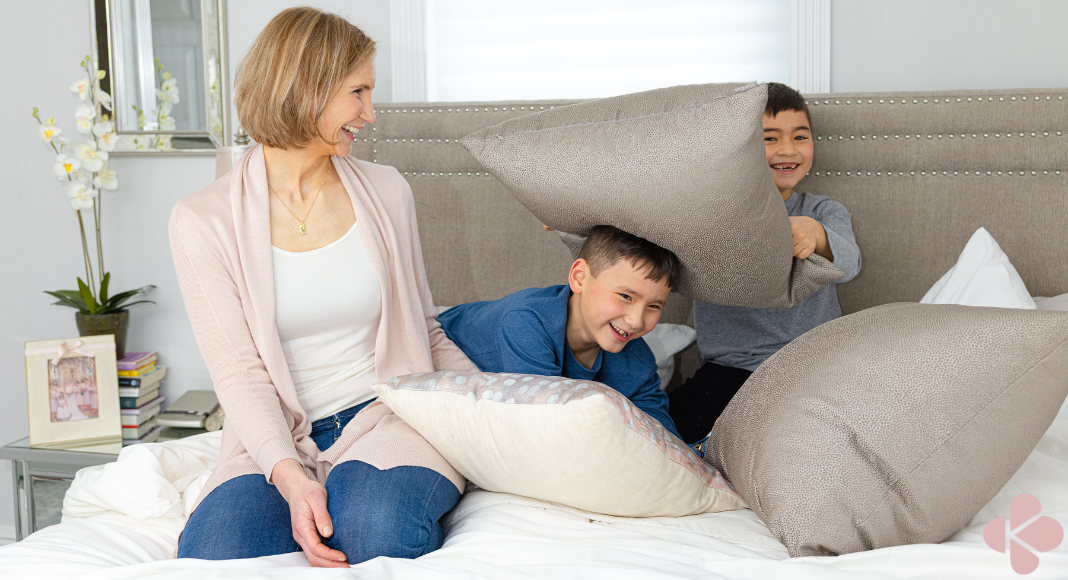 If you’re awake at 3 a.m., give me a call.
If you’re awake at 3 a.m., give me a call.
I’m kidding, of course. We all have periods where we don’t sleep well. It’s normal when the stress response is up to have a fitful night or an early morning awakening. And to feel tired the next day.
The problem is when this is our usual pattern, not just one or two off nights. Sleep improves almost everything, enhancing mood regulation, blood sugar stabilization, digestion, and decreasing inflammation markers. Taking time for adequate rest is one of the best things you can do for your body, as it’s the time our bodies use to heal and recharge our systems.
What does normal sleep look like?
How much sleep we need is an individual answer based on your homeostatic sleep drive and circadian rhythm. Your homeostatic sleep drive is the amount of sleep you naturally need to feel rested. Most of us need 7 to 8 hours per night, but some only need five hours, and some need a whopping 12 hours. The best way to know your homeostatic sleep drive is to remember your younger years and think about how much sleep you needed to feel great.
Sleep changes as we age, and my adult patients often have unrealistic expectations that they will sleep through the night uninterrupted like most teenagers do. When we’re older, our sleep pattern can become more like that of a small baby or child, where we sleep a few hours, are up for a little while, and then fall asleep again.
Circadian rhythm is the feeling of sleepiness and wakefulness during the night and day. Our high-powered 21st-century lifestyle can disrupt the natural melatonin cycle that peaks in the late evening. Devices and work (or stimulating activities) are often the most disruptive, so I encourage people to follow the 3-2-1 Sleep Rule:
- 3 hours before bed: no meals
- 2 hours before bed: no work
- 1 hour before bed: no devices
Insomnia. What if you can’t sleep?
As one who has struggled with insomnia, which started during my stressful Intensive Care Unit rotation in residency and was refueled after a stressful home renovation, I understand how it feels not to sleep.
Insomnia is characterized by difficulty falling or maintaining sleep and is associated with daytime fatigue, poor memory, or concentration difficulties. When this becomes several nights in a row, we start worrying about our performance the day following a sleepless night, which furthers the cycle.
When asked, people who struggle with insomnia don’t find themselves sleepy. They report fatigue or tiredness. If you’re not sleepy, you could be hyper-aroused or excessively wakeful. We call this the “tired-but-wired” feeling.
My savior for insomnia came from a combination of meditation and working with a skilled Cognitive Behavioral therapist for Insomnia (CBT-I), a form of psychotherapy that identifies thoughts and behaviors and addresses the underlying causes of sleep problems. It generally includes:
- Stimulus control therapy
- Sleep restriction
- Sleep hygiene
- Sleep environment improvement
- Relaxation training
- Working on paradoxical intention (worrying about falling asleep can actually keep us awake)
- Biofeedback
Sleep Tips
Over the years, I’ve come up with sleep tips that help. However, they can take two weeks or more of regular practice to work.
- Comfortable room: 65 to 67 degrees, quiet, white noise if needed, high-quality linens (this is the time to spend your hard-earned money!)
- Avoid caffeine after early-afternoon
- Avoid intense exercise within 2 to 3 hours of sleep
- Same schedule seven days per week with similar awake time each day
- Limit to one alcoholic beverage
- Bedroom used only for sleep and sex
- Chamomile tea before bed (two tea bags steeped for 20 minutes is pharmaceutical strength)
- Light snack of nuts and seeds or Iron-Fortifying Chocolate Seed Milk before bed
- Enjoy comedies on TV early in the evening to avoid “post-dramatic sleep disorder.”
- Avoid stimulating topics before bed, like work or finances
- Avoid stimulating screen time within one hour of bed and “cyber-loafing” on social media
- Developing a bedtime routine, starting with a warm bath or shower
- Go to bed only when feeling sleepy
- If feeling frustrated in bed, get out of bed and do something quiet like reading a book or meditating, going back to bed only when you nod off or feel sleepy (recognizing that you may need to do this several times!)
Good sleep is possible, but sometimes it takes a little coaxing. Be patient with yourself and the process.
And if you’re still struggling, seek help. There’s no reason to suffer from unhelpful sleep patterns. Between addressing hormones, the stress response, blood sugar balance, and unhelpful habits, there’s so much you can do with a qualified health professional.
 Dr. Katie Takayasu is an Integrative Medicine physician, author of Plants First: A Physician’s Guide to Wellness Through a Plant-Forward Diet, and speaker in the holistic health space, bridging the gap between traditional Western medicine and the evidenced-based complementary health tools of nutrition, acupuncture, meditation, botanicals, and lifestyle optimization. She works one-on-one, helping patients to recognize their own innate wisdom for finding balance in the mind, body, and spirit and in group settings with the gentle but effective Dr. Katie Detox, a jumpstart to reclaiming wellness and lifestyle balance by harnessing the body’s natural wisdom for detoxification, available in 3-day, 5-day, and 10-day guided resets. She loves being with other people who bring her joy, especially her husband and two sons. Discover Dr. Katie’s Life Kitchen at www.DrKatie.com, on Instagram @DoctorKatie, or in her collaborative healing center, Wellness Insights, in Darien, CT.
Dr. Katie Takayasu is an Integrative Medicine physician, author of Plants First: A Physician’s Guide to Wellness Through a Plant-Forward Diet, and speaker in the holistic health space, bridging the gap between traditional Western medicine and the evidenced-based complementary health tools of nutrition, acupuncture, meditation, botanicals, and lifestyle optimization. She works one-on-one, helping patients to recognize their own innate wisdom for finding balance in the mind, body, and spirit and in group settings with the gentle but effective Dr. Katie Detox, a jumpstart to reclaiming wellness and lifestyle balance by harnessing the body’s natural wisdom for detoxification, available in 3-day, 5-day, and 10-day guided resets. She loves being with other people who bring her joy, especially her husband and two sons. Discover Dr. Katie’s Life Kitchen at www.DrKatie.com, on Instagram @DoctorKatie, or in her collaborative healing center, Wellness Insights, in Darien, CT.
























